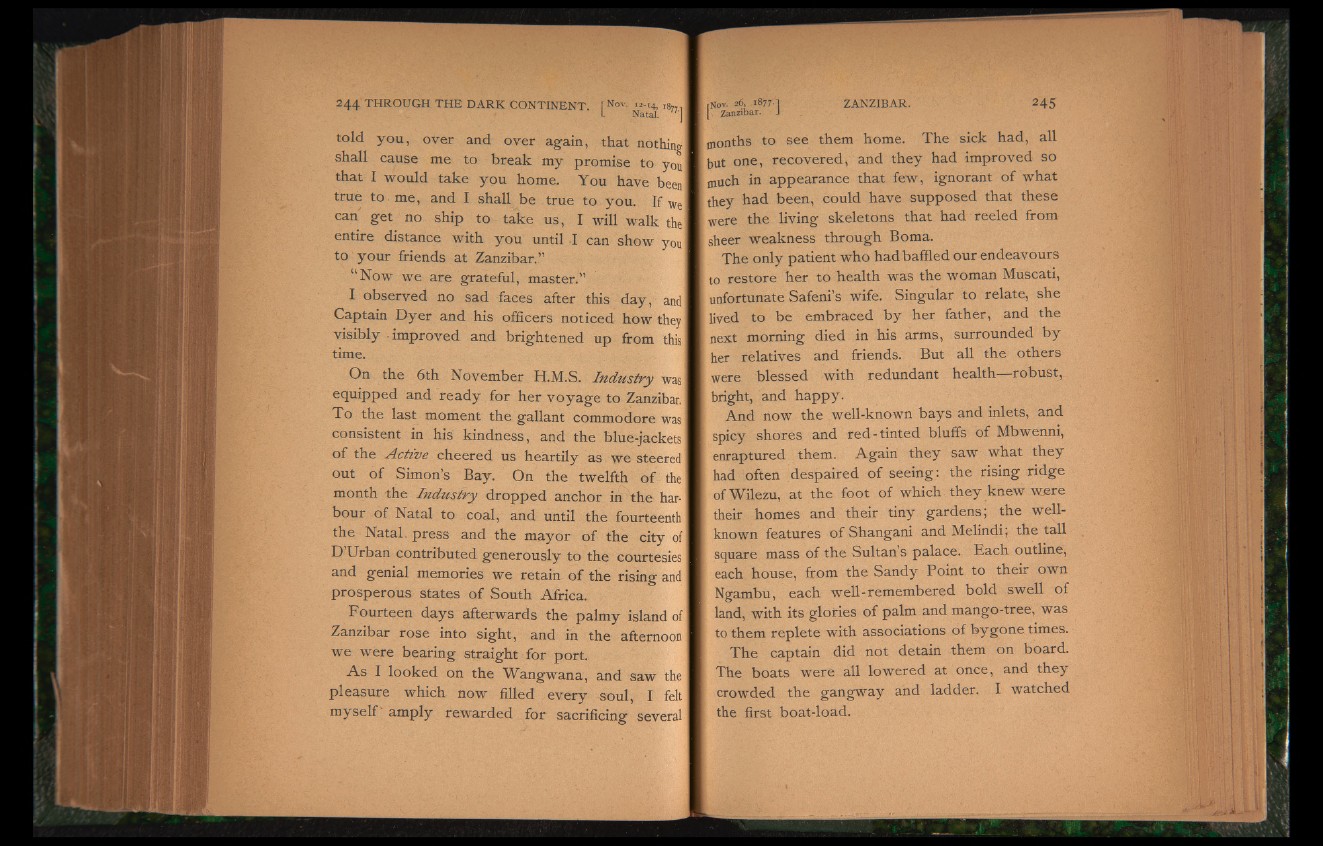
244 THROUGH THE DARK CONTINENT fNov- I2-'4,
L Natal. ' j |
told you, over and over again, that nothing
shall cause me to break my promise to you
that I would take you home. You have been
true to . me, and I shall be true to you. If wJ
can get no ship to take us, I will walk the
entire distance with you until I can show you
to your friends at Zanzibar.”
“Now we are grateful, master.”
I observed no sad faces after this day, and
Captain Dyer and his officers noticed how they
visibly improved and brightened up from this
time.
On the 6th November H.M.S, Industry was
equipped and ready for her voyage to Zanzibar.
To the last moment the gallant commodore was
consistent in his kindness, and the blue-jackets
of the Active cheered us heartily as we steered!
out of Simon’s Bay. On the twelfth of the
month the Industry dropped anchor in the harbour
of Natal to coal, and until the fourteenth
the Natal, press and the mayor of the city of
D Urban contributed generously to the courtesies
and genial memories we retain of the rising and
prosperous states of South Africa.
Fourteen days afterwards the palmy island of
Zanzibar rose into sight, and in the afternoon
we were bearing straight for port.
As I looked on the Wangwana, and saw the
pleasure which now filled every soul, I felt
myself amply rewarded for sacrificing several
,Nov. 26, 1877 T ZANZIBAR. 245
| Zanzibar. J
months to see them home. The sick had, all
but one, recovered, and they had improved so
much in appearance that few, ignorant of what
they had been, could have supposed that these
were the living skeletons that had reeled from
sheer weakness through Boma.
The only patient who had baffled our endeavours
to restore her to health was the woman Muscati,
unfortunate Safeni’s wife. Singular to relate, she
lived to be embraced by her father, and the
next morning died in his arms, surrounded by
her relatives and friends. But all the others
were blessed with redundant health—robust,
bright, and happy.
And now the well-known bays and inlets, and
[ spicy shores and red-tinted bluffs of Mbwenni,
enraptured them. Again they saw what they
had often despaired of seeing: the rising ridge
of Wilezu, at the foot of which they knew were
their homes and their tiny gardens; the well-
known features of Shangani and Melindi; the tall
square mass of the Sultan’s palace. Each outline,
each house, from the Sandy Point to their own
Ngambu, each well-remembered bold swell of
land, with its glories of palm and mango-tree, was
i to them replete with associations of bygone times.
The captain did not detain them on board.
The boats were all lowered at once, and they
crowded the gangway and ladder. I watched
the first boat-load.